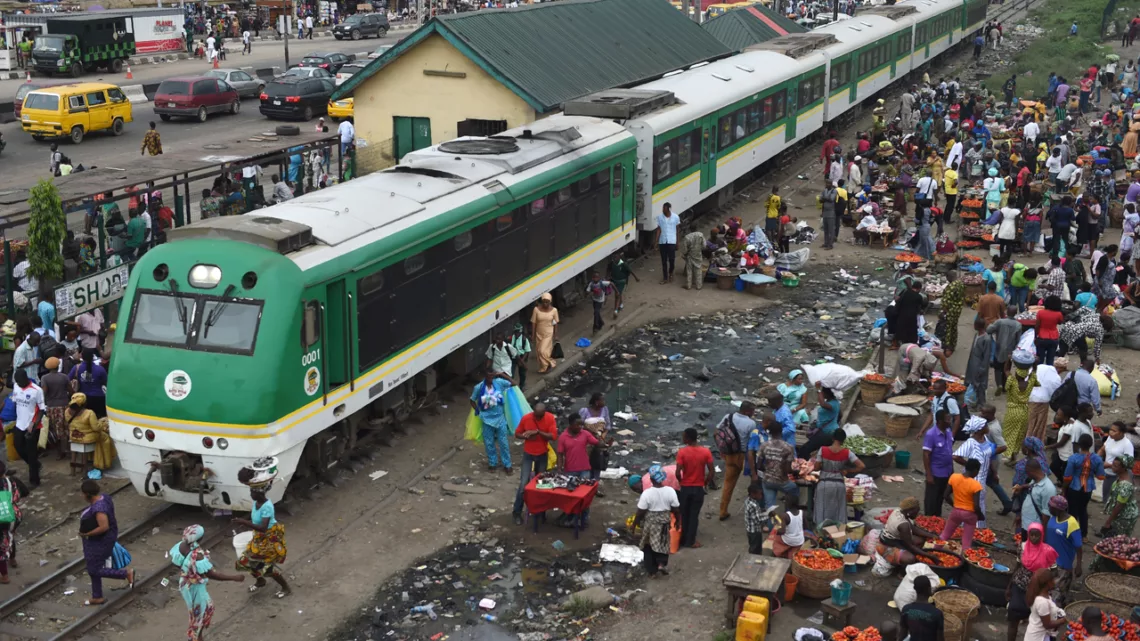Rail transportation has played a significant role in the development of Nigeria’s economy. The Nigerian Railway Corporation (NRC), which was established in 1898 by the British colonial government to facilitate the movement of goods such as groundnut, cocoa, and cotton from the inland to the coast, no doubt had a positive impact on the growth of the Nigerian economy during the country’s nascent days. However, years of neglect had pushed the rail system to the brink of collapse, burdening road transportation and almost causing its collapse.
Recent data from the National Bureau of Statistics (NBS) revealed a positive trajectory for the state-owned Nigerian Railway Corporation (NRC). In the second quarter of 2023, NRC generated N1.3 billion, marking a 33 per cent increase from N983.87 million in Q1 and a substantial 76.6 per cent rise compared to Q2, 2022.
But in contrast, the world’s leading railway companies in terms of revenue in 2021 were Deutsche Bahn (Germany) at $55.66 billion, SNCF Group (France) at $41.09 billion, and Indian Railways at $27.32 billion, as reported by London-based GlobalData, Nigeria’s railway sector has been seriously lagging behind.
However, experts have argued that the country has two significant obstacles to overcome. Firstly, its current federal system, enshrined in the 1999 Constitution, places railways on the Exclusive Legislative List.
Secondly, the challenge of inadequate funding persists just as past attempts by the National Assembly to repeal the restrictive Railways Act of 1955, which grants sole control of rail operations to the federal government, were thwarted by political obstacles.
Former President Muhammadu Buhari, launched an ambitious 25-year Railway Development Plan, with the goal of connecting all 36 states in Nigeria by rail. His plans included the construction of the Lagos-Calabar ($11.17 billion), Ibadan-Kano ($5.3 billion), Kano-Maradi ($1.9 billion), and Port Harcourt-Maiduguri ($3.03 billion) rail lines.
The Buhari administration only managed to complete the Lagos-Ibadan line with an investment of $1.5 billion, focusing on less-profitable passenger traffic, along with the Abuja-Kaduna Line. The recent successful transportation of containers along the Standard gauge rail line from Apapa Port to Ibadan, however, stands as a remarkable testament to the potential of the Nigerian railway industry. It signifies a significant leap forward in Nigeria’s quest for economic development and modernised transportation networks.
But, there can be no gainsaying the fact that the country does not have the funds to bankroll such huge projects as connecting major cities across the country if revenues cannot be generated from same.
Former minister of transportation, Rotimi Amaechi, had remarked that it would cost the federal government $33 billion to connect all of Nigeria’s major cities by rail. That is clearly a humongous sum for the federal government considering the fact that Nigeria’s current debt obligation to revenue is more than 85 per cent.
Minister Amaechi had stated that freight would be more profitable with a long haul, which is why the federal government is completing the entire line from Lagos to Kano.
The federal government had borrowed billions of dollars to complete the most functioning rail projects so far, the Lagos/Ibadan Rail line, the Abuja Kaduna rail line, and the Warri Itakpe rail line. But investigation revealed that revenue generation stream so far do not nearly meet up with the debt obligation from the cost of the rail lines.
For example, the rail sector’s viability is evident in the revenues generated by the NRC. In the first half of 2021, the NRC recorded revenues of 2.12 billion naira, a 31 per cent increase compared to the same period in 2019.
But railing the country may turn out to be a mirage if the system does not rev up profitability to sustain the sub sector. But there are other issues that are militating against the growth of rail sub sector.
The potential of the sub sector may never be realised in the face of mounting insecurity pervading the country. Economist, Dr. Sarah Akinkugbe, told NATIONAL ECONOMY that security should be of primary concern to the government as public patronage depends on how secure the passengers perceive the trains to be.
Besides, among other concerns is the imperative need to foster a culture of rigorous maintenance throughout the railway system.
Gavi Okpako, a transportation expert, noted that to ensure that this notable progress endures, the federal government must instill a commitment to regular maintenance and vigilant care for the country’s rail assets.
He noted that the significance of the successful movement of containers by rail cannot be understated.
“It is a harbinger of economic growth and a testament to the transformative power of a modernised rail network. Unfortunately, disheartening incidents of individuals pillaging rail tracks for personal gain have surfaced. Such actions not only contravene the law but also pose a significant threat to Nigeria’s economic growth. It is crucial to unreservedly condemn this criminal behavior as a form of economic sabotage. Recognising the gravity of this issue is paramount, as the theft of rail tracks disrupts rail operations, poses safety risks, and undermines the colossal potential of our rail network.”
To effectively combat these challenges, an economist, Dr. Raymond Echefu, said a comprehensive approach involving various stakeholders is imperative.
“In alignment with the renewed hope agenda advanced by President Bola Ahmed Tinubu, collective action by all stakeholders is fundamental. We must acknowledge that our railways represent a gateway to prosperity, security, and a sustainable transportation framework for our nation. Achieving this vision demands unwavering commitment and collaboration from all quarters. As we collectively fortify and enhance our rail system, we chart a course toward a brighter future for Nigeria and its people,”he stated.
A lecturer at Auchi Polytechnic, Zakari Mohamed, noted that the economic benefits are substantial. “With rail transport becoming a more cost-effective option, businesses can expect reduced operational costs, which, in turn, lead to improved profit margins. This cost-efficiency ultimately translates into lower prices for consumers, benefiting the entire economy.
“Moreover, the reduction in truck traffic resulting from the use of rail transport alleviates the chronic congestion that has plagued the Apapa area for years. The notorious traffic bottleneck has been a significant hindrance to economic activities and has driven up costs for businesses operating in the region. With containers being transported by rail, there will be a notable reduction in the volume of trucks on the road, easing the burden on road infrastructure and improving overall road safety,” he stressed.
Mohamed further said, “Beyond these economic advantages, the railway project holds the potential to stimulate economic growth along its corridor. Stations along the route can become hubs for commerce and trade, attracting businesses and creating job opportunities for the local population. The improved connectivity between Lagos and Ibadan will encourage industrial development and urbanisation in the surrounding regions, fostering economic prosperity.
“The significance of the successful movement of containers via the Standard gauge rail line from Apapa Port to Ibadan stands as a monumental achievement with far-reaching economic and transportation implications. It represents a significant leap forward in efficiency, cost-effectiveness, and sustainability in Nigeria’s transportation sector. To harness the full potential of this initiative, we must prioritise maintenance, condemn theft of rail tracks as economic sabotage, and enhance surveillance to protect lives, properties, and goods,” he added.
On a brighter note, Lagos State has been recording strides in the rail sector with rail projects already functioning in the blue and red rail lines.





